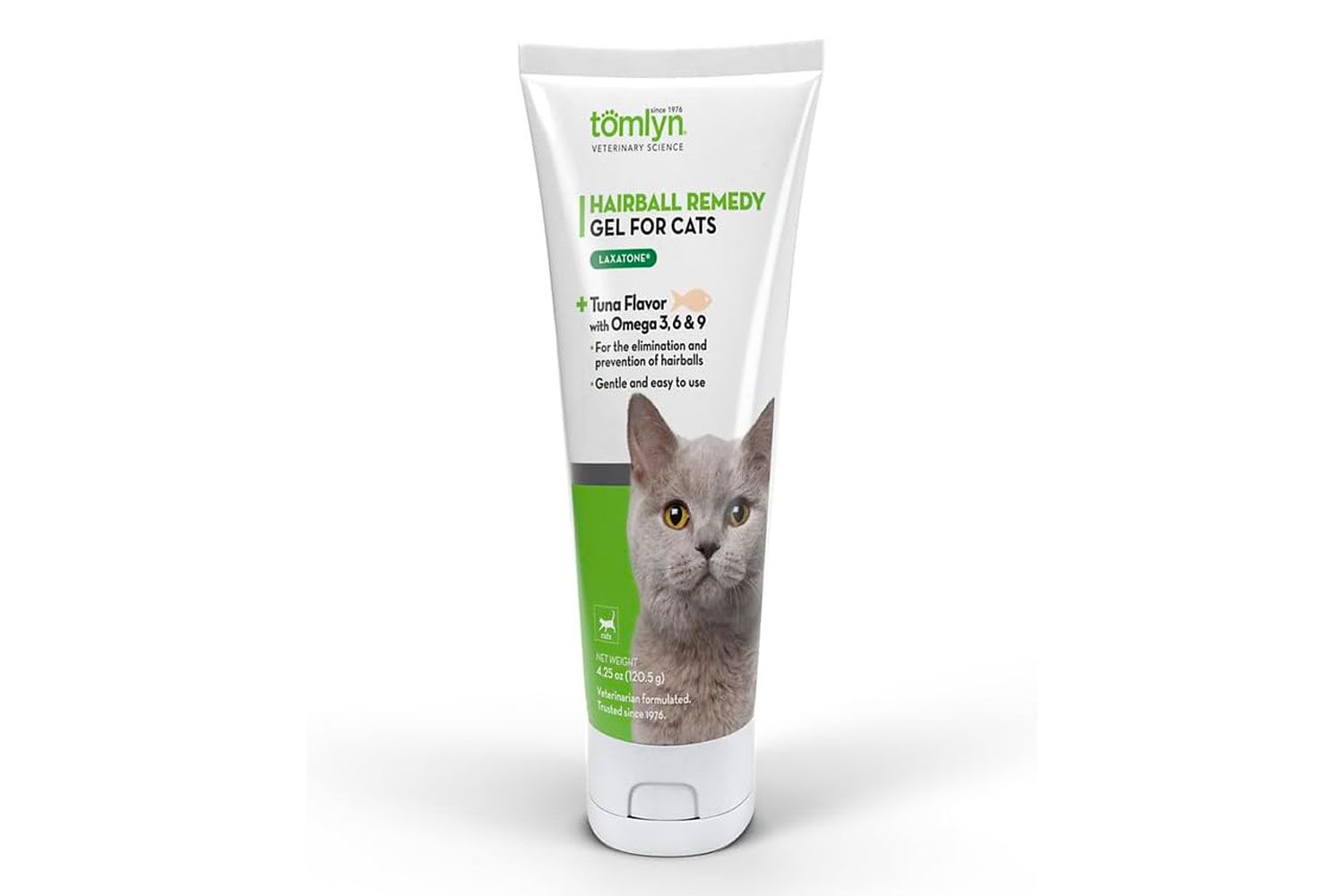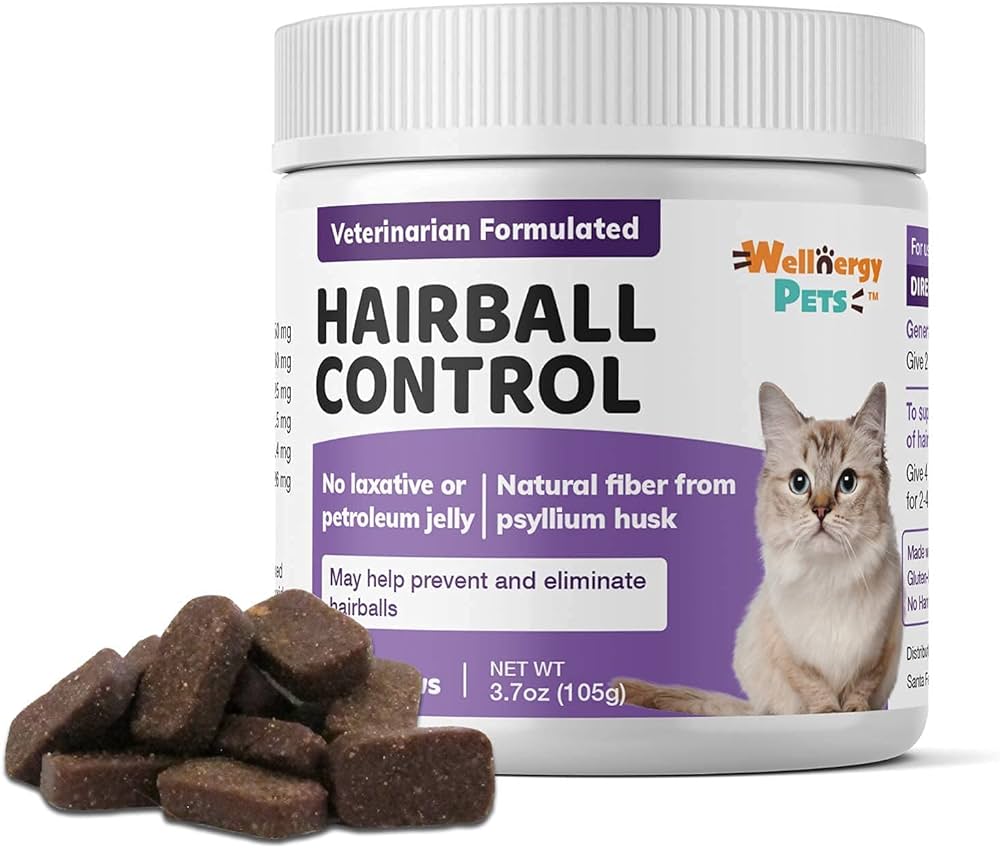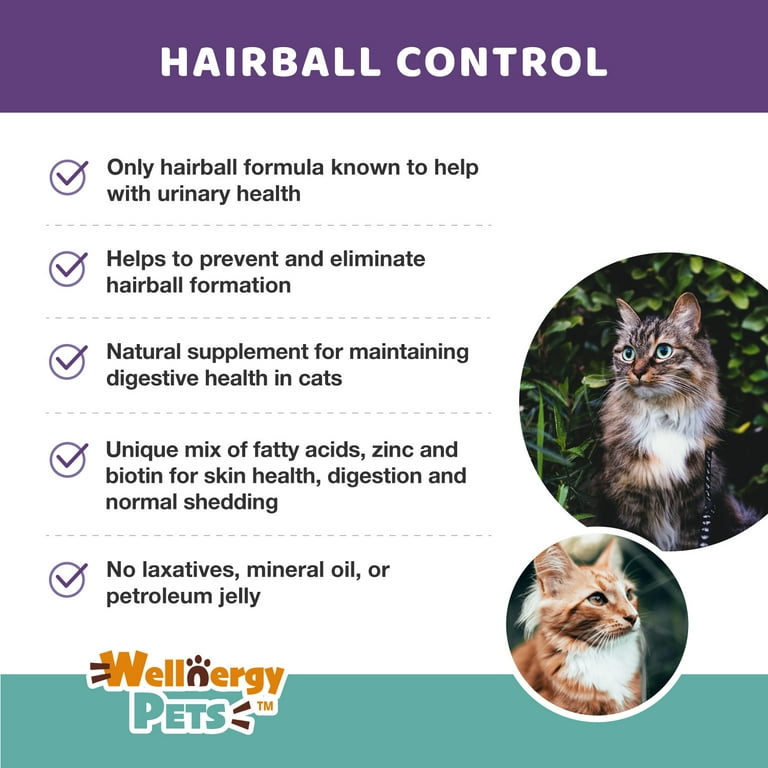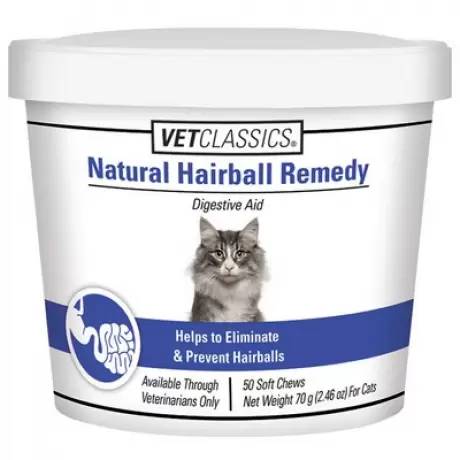Are you tired of finding your cat’s hairballs scattered around the house? If you’re looking for natural remedies to help alleviate this pesky issue, look no further. In this article, we will explore a variety of effective and safe options to help control hairballs in cats. From dietary adjustments to grooming techniques, we’ve got you covered. Say goodbye to hairball messes and hello to a happier, healthier feline friend.

Dietary Changes
Increasing Fiber Intake
If you’re looking for natural remedies to help control hairballs in your cat, one of the first steps you can take is to increase their fiber intake. Fiber is important for maintaining good digestive health and can help promote regular bowel movements, reducing the likelihood of hairballs forming. There are a few ways you can increase fiber in your cat’s diet.
Firstly, you can choose cat food that is specifically formulated to be high in fiber. Look for food that includes ingredients such as whole grains, vegetables, and fruits. These ingredients provide a good source of dietary fiber and can help keep your cat’s digestive system functioning properly.
Another option is to include more fiber-rich foods as treats or snacks. Small amounts of cooked pumpkin, carrots, or green beans can be a great addition to your cat’s diet. Just make sure to introduce these foods gradually and monitor your cat’s response to ensure they tolerate them well.
Adding Digestive Enzymes
In addition to increasing fiber intake, adding digestive enzymes to your cat’s diet can also be beneficial in controlling hairballs. Digestive enzymes help break down proteins, fats, and carbohydrates, aiding in proper digestion and reducing the chance of hairballs forming.
You can find digestive enzyme supplements specifically formulated for cats at pet stores or from your veterinarian. These supplements usually come in powder or tablet form and can be easily mixed into your cat’s food. Just follow the instructions provided on the packaging for proper dosage.
Feeding Moist Food
Feeding your cat moist or wet food can also help with hairball control. Moist food tends to have a higher water content compared to dry food, which can help keep your cat hydrated and promote healthy digestion.
Not only does wet food provide additional moisture, but it can also have a softer texture that may be easier for your cat to ingest. This is especially helpful for cats with dental issues or seniors who may struggle with dry kibble.
Grooming Techniques
Regular Brushing
One of the most effective ways to prevent hairballs is through regular brushing. Brushing your cat helps to remove loose hair from their coat, reducing the amount that they ingest while grooming themselves.
Choose a brush that is suitable for your cat’s coat type. For short-haired cats, a rubber brush or a grooming glove can be effective at removing loose hair. For long-haired cats, a slicker brush or a comb with wider teeth may be more appropriate.
Make brushing sessions a positive experience for your cat by offering treats and praise. Aim to brush your cat at least a few times a week, but you may need to brush more frequently during shedding seasons.
Using Cat-Safe Wipes
In addition to regular brushing, you can also use cat-safe wipes to help control hairballs. These wipes are specifically designed to remove loose hair from your cat’s coat and reduce the amount they swallow during self-grooming.
When choosing cat-safe wipes, look for those that are specifically labeled as safe for feline use. Avoid using baby wipes or other human products, as they may contain ingredients that could be harmful to your cat if ingested.
Using the wipes, gently stroke your cat’s fur in the direction of hair growth to remove loose hair. Be sure to pay attention to areas where hairballs tend to form, such as the base of the tail and the belly. Always be gentle and stop if your cat shows signs of discomfort.
Providing a Lickable Gel
Lickable gels are another grooming technique that can help control hairballs in cats. These gels are typically made with ingredients like petroleum jelly or mineral oil, which help lubricate the digestive tract and facilitate the passage of hair through the system.
You can offer these gels as a tasty treat or use them as a reward during grooming sessions. Simply squeeze a small amount of the gel onto your cat’s paw or directly onto their tongue, and let them lick it off. The gel not only helps with hairball control but can also contribute to your cat’s overall digestive health.
Hydration
Encouraging Water Intake
Proper hydration is essential for maintaining healthy digestion and preventing hairballs. Cats naturally have a low thirst drive, so it’s important to encourage them to drink an adequate amount of water. Here are a few tips to help increase your cat’s water intake:
-
Provide clean and fresh water: Make sure your cat always has access to clean and fresh water. Change the water regularly to keep it enticing for your cat.
-
Use a wide and shallow water dish: Some cats prefer drinking from wider and shallower water dishes rather than deep bowls. Experiment with different types of water dishes to find the one that your cat prefers.
-
Add water to wet food: If you’re feeding your cat moist or wet food, you can add water to it to increase their overall water intake. Gradually add small amounts of water and mix it well with the food.
-
Offer multiple water sources: Place water bowls in different areas of your home, especially areas where your cat spends a lot of time. This can encourage them to drink from different locations.
Using a Water Fountain
A water fountain can be an excellent investment to encourage your cat to drink more water. Cats are naturally attracted to running water, and a fountain provides a continuous flow that can pique their interest and encourage them to drink.
Water fountains also help keep the water fresh and oxygenated, which can be particularly appealing to cats. The sound and movement of the flowing water can help entice your cat to drink more and stay hydrated.
When choosing a water fountain, opt for models that are specifically designed for cats. These fountains often have features such as a quiet motor and a removable filter to keep the water clean. Regularly clean and maintain the fountain to ensure it remains a healthy water source for your cat.
Herbal Supplements
Psyllium Husk
Psyllium husk is a natural dietary fiber derived from the Plantago ovata plant. It is commonly used as a natural remedy for hairball control in cats. The husk absorbs water and swells up, forming a gel-like substance that helps lubricate the digestive tract. This can facilitate the passage of hair through the system and reduce the formation of hairballs.
You can find psyllium husk in various forms, such as powder or capsules. It can be mixed into your cat’s food or administered directly, depending on your cat’s preference. Always follow the recommended dosage instructions and consult your veterinarian before introducing any new supplements to your cat’s diet.
Marshmallow Root
Marshmallow root is another herbal supplement that can be used to help control hairballs in cats. It contains mucilage, which is a sticky substance that can help soothe and protect the digestive tract. Marshmallow root can also aid in lubrication, facilitating the passage of hair through the system.
Marshmallow root is typically available in powdered form or as a liquid extract. It can be added to your cat’s food or mixed with water and administered using a syringe. As with any supplement, it’s important to consult your veterinarian for guidance on dosing and usage.
Plantain Leaf
Plantain leaf is a versatile herb that has many potential benefits for cats. When it comes to hairball control, plantain leaf can help promote healthy digestion and ease any discomfort associated with hairballs.
You can find plantain leaf in various forms, such as dried leaves or liquid extracts. It can be used as a tea by steeping the dried leaves, or you can mix the liquid extract with your cat’s food. Again, it’s important to consult your veterinarian for proper dosage and usage instructions.

Aloe Vera Juice
Benefits of Aloe Vera Juice
Aloe vera juice is known for its soothing and healing properties, and it can also be beneficial for hairball control in cats. When ingested, aloe vera juice can help lubricate the digestive tract, making it easier for hairballs to move through the system.
In addition to its lubricating properties, aloe vera juice also has anti-inflammatory effects, which can help reduce any irritation or inflammation caused by hairballs. It can also support overall digestive health and help maintain a healthy gastrointestinal system.
Usage and Dosage
When using aloe vera juice for hairball control, it’s important to choose a high-quality, safe, and organic product that is specifically formulated for cats. Avoid using aloe vera products that contain additional ingredients such as preservatives or flavorings, as these can be potentially harmful to your cat.
Start by introducing a small amount of aloe vera juice into your cat’s diet, and gradually increase the dosage until you reach the recommended amount. It’s important to follow the dosage instructions provided by the manufacturer or consult your veterinarian for guidance.
Probiotics
How Probiotics Help
Probiotics are beneficial bacteria that can support a healthy gut and digestion in cats. They can help maintain a balanced intestinal flora, which is essential for preventing the accumulation of hairballs.
When cats groom themselves, they ingest hair that can accumulate in their digestive tract. Probiotics can help break down this hair and promote its elimination through regular bowel movements. By maintaining a healthy digestive system, probiotics can effectively reduce the occurrence of hairballs.
Probiotic Sources for Cats
There are several ways to introduce probiotics into your cat’s diet. One option is to purchase probiotic supplements specifically formulated for cats. These supplements can come in various forms such as powders, capsules, or chewable tablets. Simply follow the dosage instructions provided by the manufacturer or consult your veterinarian for guidance.
Another option is to offer your cat food that contains probiotics. Look for cat food brands that include probiotic strains in their formulations. These probiotics can help support your cat’s digestive health and minimize hairball formation. Consult your veterinarian for recommendations on suitable cat food brands.

Pumpkin
Effectiveness of Pumpkin
Pumpkin is a natural remedy that has long been used to promote healthy digestion in cats. It is rich in fiber and water, both of which can help prevent hairballs. The fiber acts as a bulking agent, promoting regular bowel movements and minimizing the accumulation of hair in the digestive tract.
Additionally, pumpkin has a high water content, which can help keep your cat hydrated and lubricate the digestive system. This allows hairballs to pass through the system more easily and reduces any discomfort or irritation associated with hairballs.
Preparing Pumpkin for Cats
When using pumpkin as a natural remedy for hairball control, it’s important to use plain, cooked, and unsweetened pumpkin. Avoid using pumpkin pie filling or other pumpkin products that may contain added sugars or spices, as these can be harmful to your cat.
You can introduce pumpkin into your cat’s diet by adding a small amount to their food. Start with approximately one teaspoon for small cats, and gradually increase the amount if your cat tolerates it well. Monitor your cat’s response and consult your veterinarian for additional guidance or specific recommendations.
Coconut Oil
How Coconut Oil Helps
Coconut oil is another natural remedy that can be beneficial for hairball control in cats. It contains medium-chain fatty acids (MCFAs), which have antimicrobial and anti-inflammatory properties. These properties can help support a healthy digestive system and reduce the occurrence of hairballs.
When ingested, coconut oil can help lubricate the digestive tract, making it easier for hairballs to move through the system. It can also add moisture to the stool, preventing constipation and promoting regular bowel movements.
Applying Coconut Oil to Cats
To use coconut oil for hairball control, you can offer it to your cat orally or apply it topically to their fur. If you choose to offer it orally, start with a small amount (approximately 1/4 teaspoon for small cats) and gradually increase the dosage. You can mix the coconut oil into your cat’s food or let them lick it directly off a spoon.
If you prefer to apply coconut oil topically, rub a small amount on your hands and gently massage it into your cat’s fur. Pay attention to areas where hairballs tend to form, such as the base of the tail or the belly. The coconut oil can help reduce shedding and make the hair less likely to be ingested during grooming.

Cat Grass
Promoting Natural Hairball Elimination
Cat grass is a type of grass or wheatgrass that can be grown indoors for cats to chew on. Cats often instinctively seek out grass to help induce vomiting and naturally eliminate hairballs from their system.
When cats ingest grass, it stimulates their gag reflex and helps them expel hairballs by inducing vomiting. This can be an effective and natural way to prevent the formation of hairballs in the first place.
Growing Cat Grass at Home
Growing cat grass at home is relatively simple and can provide your cat with a safe and accessible source of natural hairball control. There are cat grass kits available for purchase that include everything you need to get started, including seeds, soil, and a container.
Follow the instructions provided with the kit to plant the seeds and care for the grass. Place the container in an area where your cat can easily access it, such as near their food or by a sunny window. Allow the grass to grow to a suitable height before offering it to your cat.
Fish Oil
Benefits of Fish Oil
Fish oil is a rich source of omega-3 fatty acids, which can provide numerous benefits for cats, including hairball control. Omega-3 fatty acids have anti-inflammatory properties that can help reduce any irritation or discomfort caused by hairballs. They also help maintain a healthy coat and skin, reducing shedding and the likelihood of excessive hairball formation.
In addition to its hairball control benefits, fish oil also supports overall cardiovascular health, joint health, and cognitive function in cats.
Determining the Right Dosage
To offer fish oil to your cat, it’s important to choose a high-quality fish oil specifically formulated for feline use. Fish oil supplements typically come in liquid or capsule form. Follow the dosage instructions provided by the manufacturer or consult your veterinarian for guidance on the appropriate dosage for your cat based on their weight and individual needs.
It’s worth noting that excessive consumption of fish oil can have adverse effects, so it’s important to stick to the recommended dosage. Monitor your cat’s response to the fish oil and consult your veterinarian if you have any concerns.
In conclusion, incorporating dietary changes, implementing grooming techniques, promoting hydration, and utilizing natural remedies can all contribute to effective hairball control in cats. By following these suggestions, you can help keep your feline friend happy, healthy, and free from the discomfort and inconvenience of hairballs.
